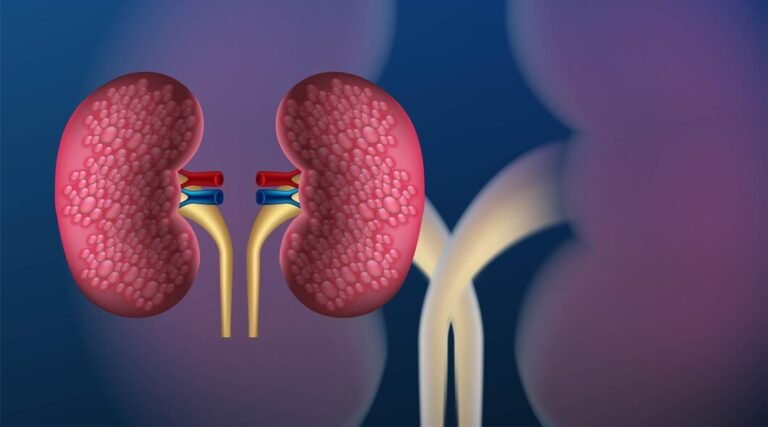Unveiling Kidney Cancer: Understanding, Diagnosing, and Treating Renal Cell Carcinoma.
Kidney cancer, particularly renal cell carcinoma (RCC), has emerged as a significant challenge in modern oncology. With a steadily increasing global incidence, awareness about its causes, symptoms, and treatment options has become crucial. Patients seeking the Best Kidney Cancer Treatment in New Delhi benefit greatly from advancements in diagnostics and therapy that are transforming outcomes. This article explores kidney cancer in depth, focusing on its understanding, diagnosis, and evolving treatment landscape.
For fast information, direct chat with us on WhatsApp.
Understanding Kidney Cancer
Kidney cancer develops when abnormal cells begin to grow uncontrollably in the kidney tissues. Among its various types, renal cell carcinoma is the most prevalent and clinically significant.
Renal Cell Carcinoma (RCC)
Almost 90% of instances of kidney cancer are renal cell carcinoma. It originates in the lining of the kidney’s small filtering tubes that help remove waste from the blood. Due to its biological complexity, RCC often requires specialized care, which is why many patients search for the Best Kidney Cancer Treatment in New Delhi, where multidisciplinary expertise is available.
Risk Factors
Kidney cancer risk is increased by a number of variables. Smoking remains one of the strongest contributors, while obesity and high blood pressure also play a major role. Additionally, individuals with a family history of kidney cancer or genetic disorders such as von Hippel-Lindau (VHL) syndrome face a higher risk. Awareness of these risk factors allows for earlier evaluation and access to the Best Kidney Cancer Treatment in New Delhi when needed.
Symptoms
In its early stages, kidney cancer may not produce noticeable symptoms. As the disease progresses, patients may experience blood in the urine, persistent pain in the side or lower back, unexplained weight loss, fever, or ongoing fatigue. Since these symptoms can be subtle or mistaken for other conditions, timely medical consultation is essential.
Diagnosis and Staging of Kidney Cancer
Accurate diagnosis and staging form the foundation of effective kidney cancer management.
Imaging Studies
Advanced imaging techniques such as CT scans, MRI, and ultrasound play a vital role in detecting kidney tumors. These tests help determine the tumor’s size, exact location, and whether it has spread to nearby tissues or distant organs. High-quality imaging is a hallmark of centers offering the Best Kidney Cancer Treatment in New Delhi, enabling precise treatment planning.
Biopsy
In selected cases, a biopsy may be performed to confirm the diagnosis and identify the specific subtype of renal cell carcinoma. However, biopsies are not always necessary, especially when imaging findings are conclusive. The decision is made carefully to avoid unnecessary risks.
Staging
The TNM staging system is widely used to assess kidney cancer. It evaluates tumor size (T), lymph node involvement (N), and distant metastasis (M). Staging ranges from Stage I, where cancer is confined to the kidney, to Stage IV, where it has spread to other organs. Proper staging ensures that patients receive the most appropriate and effective care.
Treatment Options for Renal Cell Carcinoma
Treatment strategies depend on the stage of cancer, overall health, and individual patient factors.
Surgery
Surgery remains the cornerstone of treatment for localized kidney cancer. A radical nephrectomy involves removing the entire affected kidney, while a partial nephrectomy removes only the tumor, preserving kidney function. Leading centers providing the Best Kidney Cancer Treatment in New Delhi emphasize organ-preserving approaches whenever possible.
Targeted Therapy
Targeted therapies have significantly improved outcomes for advanced kidney cancer. These medications focus on specific molecular pathways that promote cancer growth. Tyrosine kinase inhibitors are commonly used and have shown effectiveness in controlling disease progression.
Immunotherapy
Immunotherapy has transformed the treatment of renal cell carcinoma. Drugs such as immune checkpoint inhibitors help the body’s immune system recognize and attack cancer cells more effectively. For many patients, immunotherapy has extended survival and improved quality of life, making it an essential component of the Best Kidney Cancer Treatment in New Delhi.
Radiation Therapy
Although kidney cancer is relatively resistant to radiation, this treatment may be used in specific situations, such as when surgery is not feasible or to relieve symptoms in advanced disease. It can play a supportive role in comprehensive cancer care.
Challenges and Recent Advances
Resistance to Treatment
One of the major challenges in kidney cancer management is the development of resistance to targeted therapies. Researchers are actively studying resistance mechanisms to design combination treatments that can overcome this issue.
Early Detection
Because kidney cancer often lacks early symptoms, diagnosis frequently occurs at later stages. Ongoing research into biomarkers and improved imaging techniques aims to enable earlier detection and better outcomes.
Personalized Medicine
The future of kidney cancer treatment lies in personalized medicine. By analyzing the genetic makeup of individual tumors, therapies can be tailored for maximum effectiveness. This approach is increasingly being integrated into the Best Kidney Cancer Treatment in New Delhi, offering patients more precise and effective care.
Conclusion
Kidney cancer, particularly renal cell carcinoma, requires a comprehensive, multidisciplinary approach for optimal management. Advances in surgery, targeted therapy, and immunotherapy have significantly improved patient outcomes. With continuous research and innovation, treatment strategies are becoming more personalized and effective. For patients and families navigating this challenging diagnosis, access to the Best Kidney Cancer Treatment in New Delhi offers hope, expertise, and advanced care that can make a meaningful difference in the journey toward recovery.
You can schedule an appointment or find out more at https://ummeedurologyandgynecology.com/.







